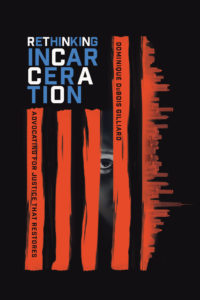We’d like to welcome our latest guest blogger, David Bjorlin. David is a worship pastor at Resurrection Covenant Church in Chicago, seminary faculty member at North Park Theological Seminary, and a published hymn writer. David has found a wide range of outlets for his passion for worship and the church. His interests include hymnody, connections between liturgy and ethics, and children in worship. He loves being able to plan worship so that a congregation may enact and indwell the redemptive story of God in worship week after week. – Brian Hehn, Director of The Center for Congregational Song
A Key Question
Over the past few decades, one of the key questions that liturgists have been asking is how what we say and do in worship shapes our theology and ethics. Because we are liturgists and need to show just how out of touch we are with contemporary trends, we even use Latin shorthand to describe this connection—lex orandi, lex credendi, lex vivendi. Literally this saying means that “the law of prayer [is] the law of belief [is] the law of living.” That is, prayer/worship shapes theology shapes ethics. While debates rage over how the three are connected, most would agree that worship helps form our understanding of God and the way we live in God’s world with one another. If this is the case, it means the words we say and sing in worship are vital to Christian formation.
Atonement Theology
Because this is true, I have grown more and more concerned about how our songs, particularly contemporary worship songs, sing about the atonement—the way we are reconciled to God through Christ’s life, death, and resurrection. In the vast majority of contemporary praise songs, Jesus’ death is almost always portrayed as substitutionary: we should have been punished for our sins, but God took our place and the punishment that was rightly ours and saved us. In its most extreme forms, Christ’s death satisfies the wrath of God that we incurred through our sin (penal substitutionary atonement). While examples abound, here are just a few of the most well-known from CCLI’s Top 100 list:

“This is unfailing love / that you would take my place, / that you would bear my cross” (“This Is Amazing Grace”); “Behold the man upon the cross, / my sin upon his shoulders… / It was my sin that held him there / until it was accomplished” (“How Deep the Father’s Love for Us”); and the granddaddy of them all, “till on the cross has Jesus died, / the wrath of God was satisfied” (“In Christ Alone”). Lest we think this trend is only found in contemporary praise songs, many classic hymns rely heavily on the substitutionary trope as well. Take the second stanza of Philip Bliss’s “Man of Sorrows!”: “Bearing shame and scoffing rude, / in my place condemned he stood; / sealed my pardon with his blood: / Hallelujah, what a Savior!”
That is, if our central atonement theology claims that God needs retribution for his (male pronoun used purposefully) wrath or justice to be satisfied, it’s no wonder that our justice system would also be built on the idea of retribution rather than restoration.
To be clear, there are differences between substitutionary atonement and penal substitution. In my estimation, there is some biblical warrant for the former (much of the book of Hebrews, for example), while I find the latter to be less biblical and more pagan in origin. However, in both modes, the clear message of the atonement is the need for retribution for the sins of humanity. I have long understood how this myopic focus on substitutionary atonement has led to theological distortions. God the Father becomes an angry God of justice who must be won over by the merciful Jesus (God the Son saves us from God the Father); wrath often becomes the motivating force of the cross rather than God’s unrelenting love; and Christ’s life and resurrection seem to become unimportant additions to Christ’s death. I believe this overemphasis on substitutionary atonement theories is part of the reason why many Christians find it so much easier to believe in an angry God just waiting to punish them than a loving God seeking to reconcile all things through Christ.
Ethics
However, I was struck anew by how this singular view of the atonement can warp our ethical lives in reading Dominique DuBois Gilliard’s excellent new book Rethinking Incarceration: Advocating for Justice That Restores.

The entire book is a must-read for those who wish to understand and challenge the racism endemic to our justice system that continues to disproportionately target and incarcerate people of color. However, what struck me was the connection Gilliard drew between penal substitutionary atonement and the punitive way we treat those who are arrested and incarcerated in our society. That is, if our central atonement theology claims that God needs retribution for his (male pronoun used purposefully) wrath or justice to be satisfied, it’s no wonder that our justice system would also be built on the idea of retribution rather than restoration. A crime has been committed, and satisfaction must be paid for that crime even if we desire to show mercy. What happens before and what happens after is of little consequence; punishment is the key. And if we lay this theological system onto a racially-biased criminal justice system, Christians too often find themselves “theologically justifying racism.” In the end, if we distort our worship, we not only distort how we understand God, but also distort how we treat one another.
A Challenge
I think this is offers a challenge to worship leaders and songwriters to offer congregations different ways of understanding Christ’s atonement. We desperately need more praise songs that sing of Christ’s saving way of living in the world that challenged oppression and injustice and continue to challenge us to new ways of living in right relationship to God, others, and creation. We need more songs that celebrate Christ’s resurrection as an integral part of Christ’s victory over death, not just to save me from my sins, but to reconcile the cosmos. We need more songs that remind us that God’s death was motivated not by an angry God who scares us into obedience, but a God whose “love so amazing, so divine, / demands our souls, our lives, our all.”

David Bjorlin – Blog Author


